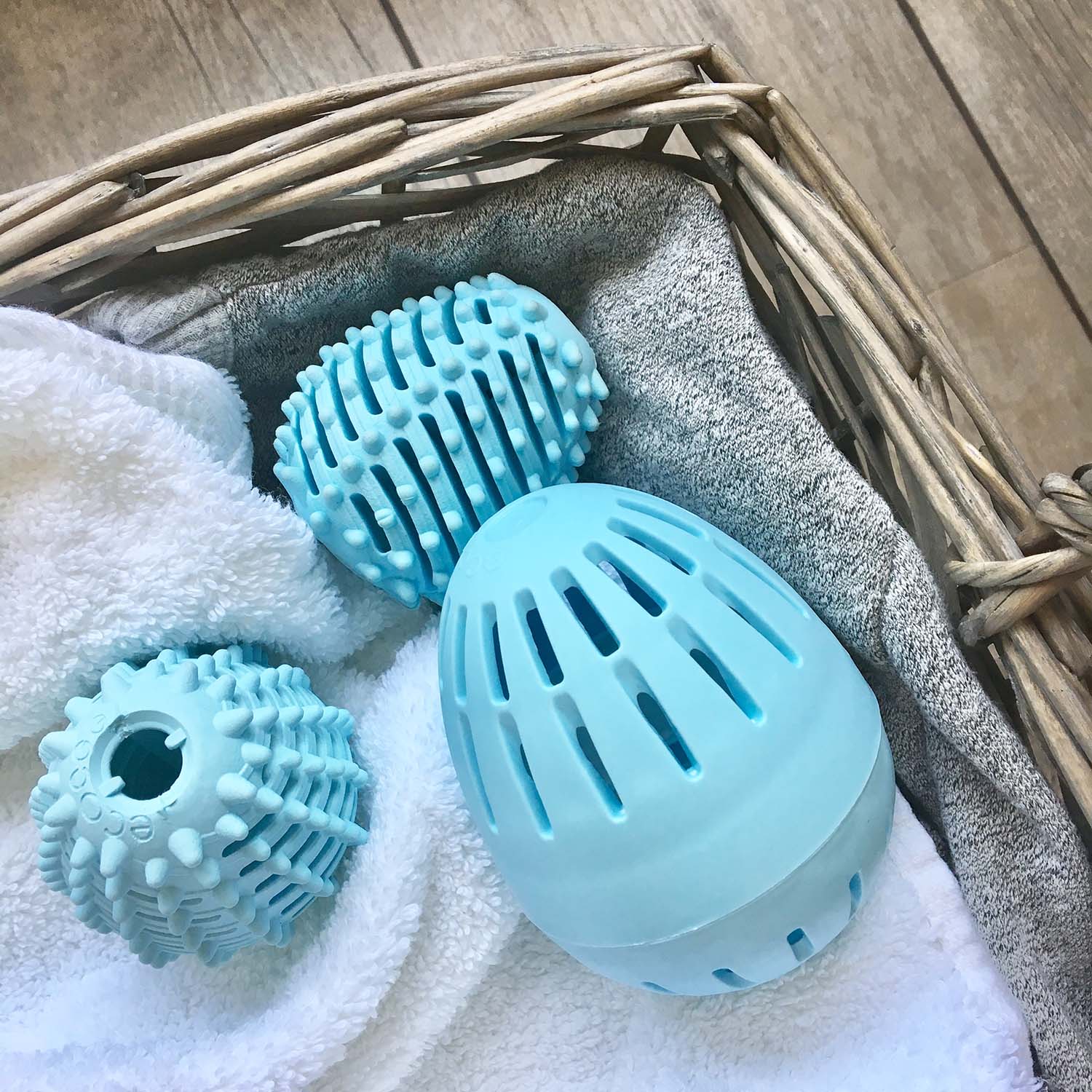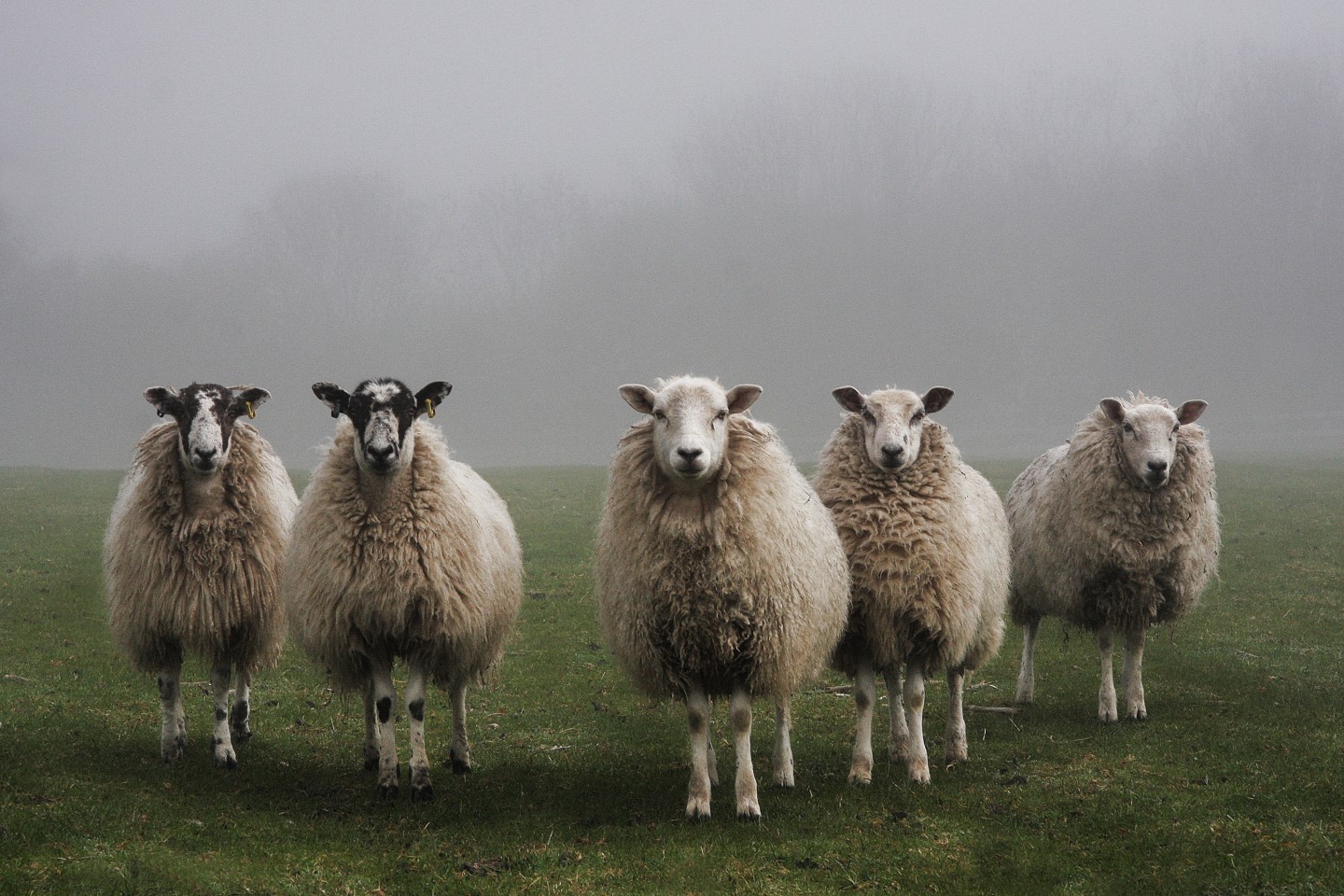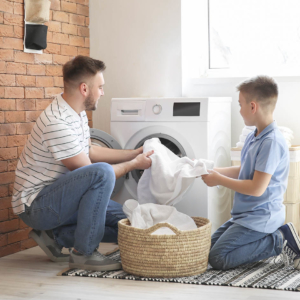Are Ecoegg dryer eggs or wool dryer balls better for the environment?
Your tumble dryer is the second biggest energy hog in your home (after your fridge) so if you’re wanting to reduce your energy consumption and make your home more eco-friendly, then how you dry your laundry could make a huge difference.
Both ecoegg Dryer Eggs and wool dryer balls share similar benefits. They can reduce your energy consumption, so you’ll be saving extra pennies and making a kinder choice for the planet. They both work by maximising space in your dryer by lifting and separating clothes in the drum which allows more air to circulate and thus, your clothes to dry quicker.
But which one should you choose to be eco-friendly?
The ecoegg Dryer Egg
Ecoegg’s mantra is “helping to save the planet, one egg at a time” by reducing single-use plastic waste. Although made from plastic, the Dryer Eggs are made using eco-friendly, fully recyclable plastic (polypropylene).
This material absorbs and radiates heat from the dryer itself and the energy created from the eggs tumbling around. When recycled properly at the end of its long, 10-year guaranteed life, the Dryer Egg reduces landfill compared to your average washing powder, fabric softeners and dryer sheets.
The egg’s nodules are tiny multi-tasking heroes, designed to gently lift and separate the clothing, which helps to reduce drying time by up to 28%, as well as softening the laundry as it tumbles. This helps reduce your energy consumption and reduce your plastic waste from fabric softener bottles and tumble dryer sheets. A certain win-win for your pocket and the planet!
The Dryer Egg comes gently fragranced with Fresh Linen, Spring Blossom or as completely fragrance free. It’s also perfect for those with sensitive skin as it’s free from harmful chemicals, winning the ‘Allergy Friendly Product’ award every year since 2011.
The fun doesn’t stop there – it’s also BPA free, so no toxins! BPA stands for bisphenol, which is an industrial chemical used to make certain plastics. It’s often found in food containers and water bottles. Although there is no concrete evidence, consuming BPA is thought to have negative health consequences because it can mimic the hormone structure and disrupt the process.
Additionally, the packaging is all recyclable and sustainable too – even the ink!

Wool dryer balls
Wool dryer balls are a more natural solution and can absorb all the moisture in your clothes. They can last up to approximately 1,000 loads of washing or 3 years on average, saving you precious time and energy – here, the ecoegg is a clear winner with its 10-year guarantee.
They also reduce drying time by between 10% and 25%, which isn’t much different to ecoegg’s 28% but still – every little does help!
Wool balls are a lot softer in the dryer than plastic eggs, so don’t make as much noise when they’re tumbling around. They also help reduce static and wrinkles, like their egg-shaped counterparts but have no fragrance abilities – unless you happen to have some essential oils lying around to add a drop or two to them.
However, the biggest factor that sets these two products apart is how ethical the material is.
The problems with wool
Wool is primarily sourced from sheep, and it’s not always sustainable or remotely humane. Raising sheep for wool means that thousands of acres of land is cleared, and trees are cut down.
According to PETA, around 20% of grazing land had degraded because of “overgrazing, compaction and erosion”.
For example, Argentina was the second biggest producer of wool, behind Australia, but the scale of their operations outgrows their capacity of land to sustain it, so 93% of their land has degraded as a consequence.
But it’s not just the sourcing of wool that is ethically questionable. PETA exposed videos of mutilation, abuse and the skinning alive of sheep in nearly 100 facilities over four different continents, including farms that labelled themselves ‘responsibly sourced’ and ‘sustainable’. You may not believe that it happens in the UK, but the Independent published an article in 2018 revealing the cruelty of British farms.
Many wool dryer balls use wool imported from New Zealand which uses masses of energy and releases carbon dioxide into the atmosphere. Additionally, methane emissions from New Zealand’s farming (coming mostly from sheep) makes up more than 90% of their greenhouse-gas emissions.
Additionally, wool dryer balls don’t support a vegan or cruelty free lifestyle. Although the Dryer Egg is made from plastic whereas wool is renewable and biodegradable, all ecoegg products are vegan and cruelty free.

The verdict?
Ultimately, we must remember that plastic revolutionized our way of living for a reason and underneath all the negatives of throwaway culture, the benefits of plastic do outweigh the unethical sourcing of wool.
You can get your very own ecoegg Dryer Egg today, and explore our range of eco-friendly laundry products to start ditching single-use plastics:
